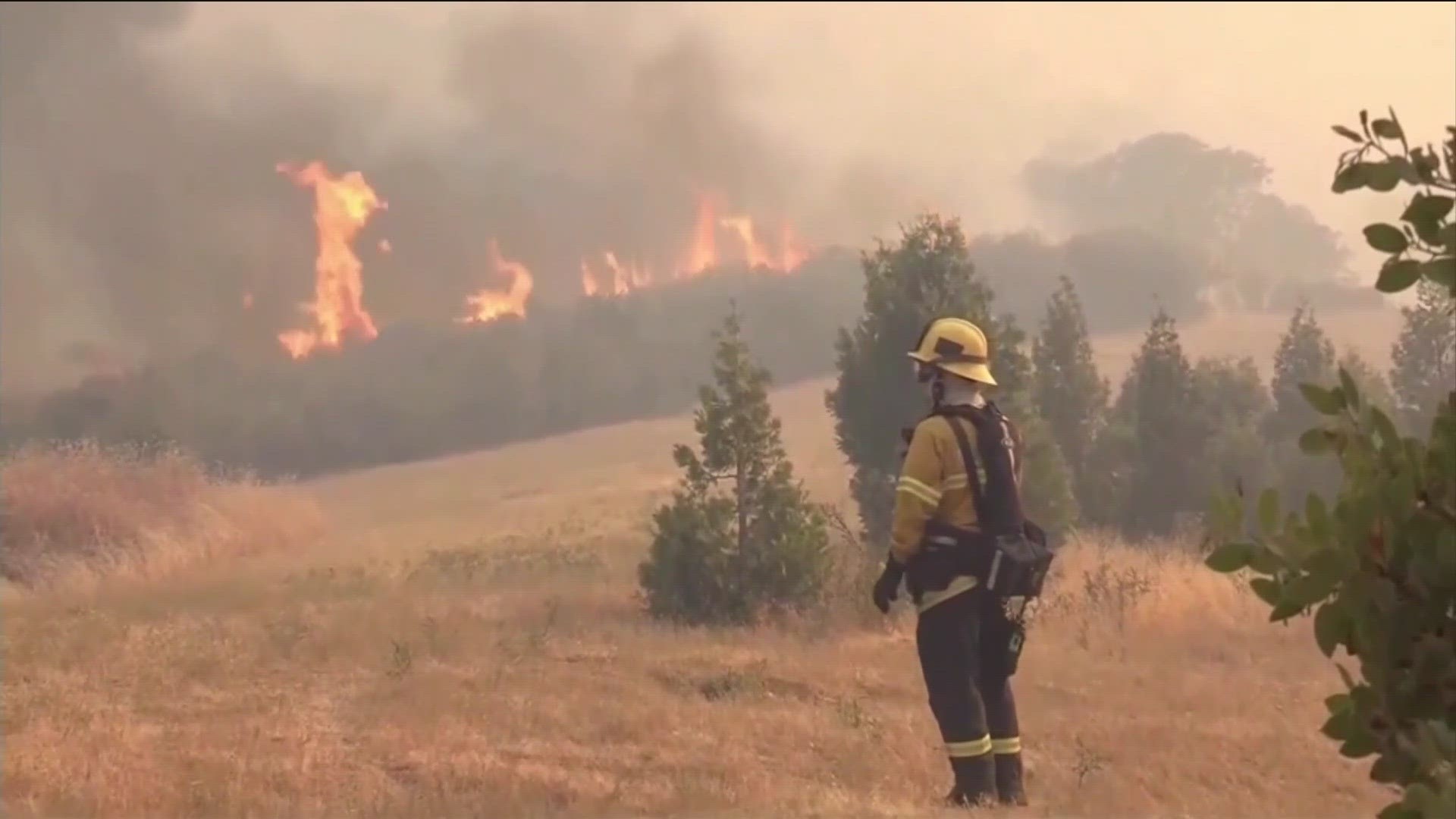SAN DIEGO — It is estimated that a typical person will see one or two traumatic events in his or her lifetime. However, a first responder will see more than 800 traumatic events.
According to the National Fallen Firefighters Foundation, the rate of firefighter suicides is almost double that of the general population.
The San Diego Fire Rescue Department says preventing suicides is now a top priority. Over the past few years, the department has come up with a comprehensive plan that is being modeled across the nation.
CBS 8's Heather Myers spoke with one local fire captain who is sharing his personal story to provide help and hope.
"If you've been there, you do not want anyone else to go there, because it's very dark," said San Diego Fire Rescue Captain Jared Cheselski.
Cheselski has been in the fire service for nearly three decades. In 2017, Cheselski remembers that he began to grow apart from family and friends. He was no longer interested in hobbies and remembers there was friction at home.
Then in October of that same year, he was dispatched to a house fire that ultimately sent him to rock bottom.
"I was on a fire where we had two child fatalities and we saved the dad out of the fire and he survived. And he was the one that actually contributed to starting the fire and my brain couldn't fully make sense of that," Cheselski said. "That is when PTSD really set in and so did anger.
"So contemplations of suicide were high. It was a constant thought every day," said Cheselski, the father of now three adult daughters. He is also now a proud grandfather of an infant grandson. Cheselski said it was a fellow firefighter who reached out and urged him to get help although he did not know what resources, if any, were available.
Suicide is one of the top three causes of death for firefighters next to cancer and heart disease. San Diego Fire Rescue Battalion Chief, David Picone, says there have been four firefighter suicides in San Diego County in the past few years.
Picone is the Health and Safety Officer for the department. He says in recent years, the need for mental health resources has been so urgent that the department and the unions came up with a comprehensive support plan.
Now, there is immediate help for any firefighter or staff member.
"We have 70 Peer Support Team Members, which are people from the department who have received training. From firefighters to lifeguards to dispatchers, we have peer supporters in all those areas."
First Responders are also given access to the department's Behavioral Wellness app. With a quick swipe on their phones, they can reach 17 chaplains as well as dozens of counselors who are specially trained to work with first responders. The therapists understand the lingo and the daily stresses these men and women face. It's all free and confidential and if someone is in severe distress, the department has now contracted with inpatient treatment facilities.
"Now if somebody called me right now to say, 'Hey, I'm ready, I need to go in,' we can have them in a bed in two hours," said Picone.
After years of therapy, times of solitude, research, and physical exercise, Captain Cheselski is now one of the 70 peer supporters. He's also started a weekly support group for first responders across the county and he's sharing his personal journey to inspire others to get help.
"I have done some public speaking and I have shared that story in the past. I've had an immediate response from people in the audience who came up to me after and said I'm right there where you were, what do I need to do?" said Cheselski.
That's why Cheselky says he never gets tired of this new mission. He is helping the helpers long before the darkness ever sets in."Health and Safety have really helped us gather these tools and have put them in place so that all we have to do as firefighters and employees, is just reach out and use them and practice them. So that when we are in those dark moments, we know right, where to go," said Cheselski.
If you or someone you know needs help, please call 9-8-8.

